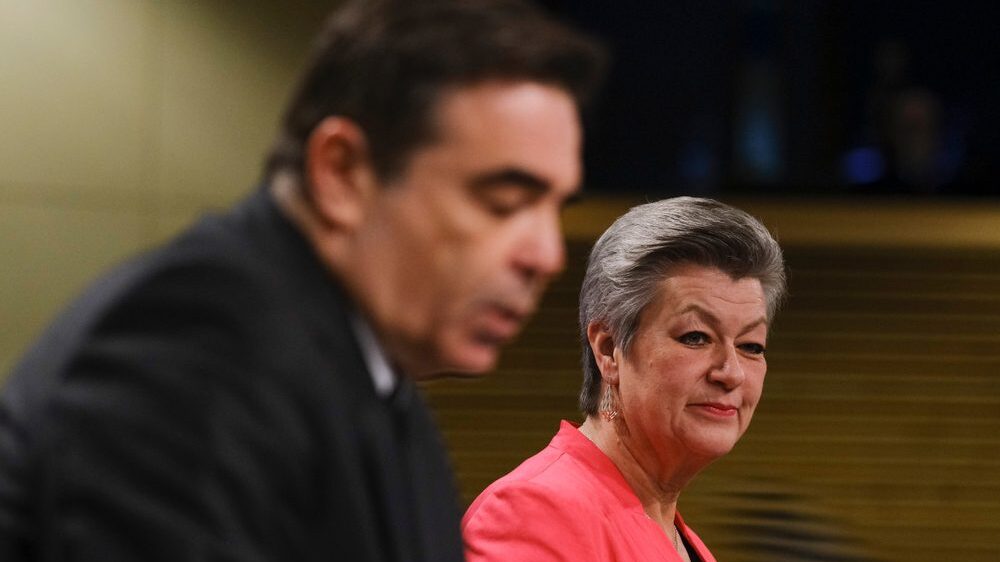
Ylva Johansson, the EU’s Home Affairs Commissioner (R) and Margaritis Schinas, the European Commissioner for Promoting the European Way of Life (L).
The European Commission called on the member states to increase deportations of failed asylum seekers while recognizing existing migrant return agreements during a press conference held by the EU’s Home Affairs Commissioner on the bloc’s new border management strategy.
Only 21% of the migrants who are not eligible for international protection were returned to their countries of origin last year, the briefing revealed, underlying the Commission’s request to increase this share in the future.
“When we fail to return people, this hampers our system and erodes trust,” Commissioner Ylva Johansson said at the press briefing in Strasbourg on Tuesday, March 14th.
“To protect the right to apply for asylum, we have to show that we are appropriately dealing with those who do not qualify for international protection,” the commissioner added. “We need migration, but it has to be in a legal and orderly way.”
However, streamlining the deportations remains an issue among member states. As we reported earlier, recently uncovered documents show that EU members have already been working on new frameworks to make it easier to cooperate on facilitating returns, including pooling resources, information, and negotiating power.
Now, the commissioner’s remarks all but confirmed that a centralized effort to ramp up deportations will indeed constitute a key element in the bloc’s upcoming border management strategy. As a first step, the mutual recognition of already existing return agreements between the member states would make it “much easier to streamline returns,” Johansson said.
Although the EU’s existing rules already allow them, few countries have used these agreements to cooperate on deportations so far. Lack of resources and the reluctance of third countries to accept failed asylum seekers have contributed to deportation failures in the past, but a more succinct approach with better communication between the member states is urgently needed.
A joint approach to border control should also mitigate the tensions that have risen in the past in relation to the migration debate. The EU needs to establish “common principles on how we manage our borders,” Commission Vice President Margaritis Schinas said at the briefing, “to prevent people from playing one country off against another.”
The so-called integrated border management strategy is set to be part of the EU’s new Immigration and Asylum Pact, which is currently being developed by the Council and the Commission. Finalizing the pact is among the top priorities of Brussels, as EU leaders aim to push it through the legislative process before next year’s European elections.
“When Europeans go to vote next May, they should do so with certainty that Europe has delivered this long-overdue agreement on the management of migration,” Schinas told the reporters.
The EU’s legislative priorities, including its new integrated-migration management strategy, will be explored in detail at The European Conservative’s upcoming event, “Europe: A Path Forward?”, held in Brussels at the Silversquare working space, 11 a.m. on March 22nd. It is open to the public but registration is required.
